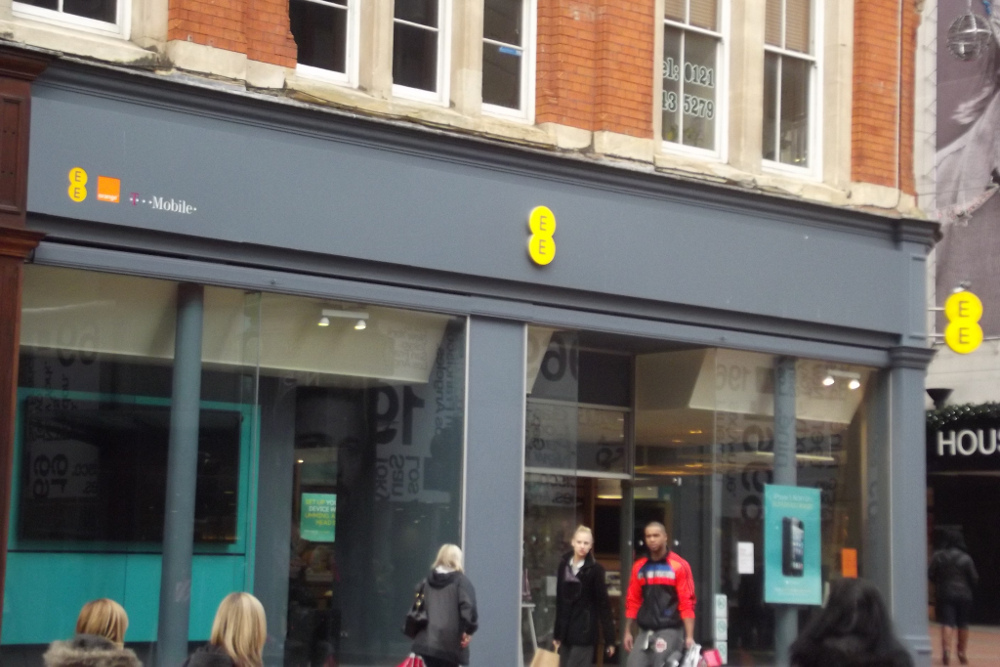A data shock warning for Orange customers
Orange didn't tell Tom Brewster he was going to lose his data bundle. Here's why it has made him angry...


COMMENT The first data shock is the deepest. At least that's how I feel following my first encounter with an unfeasibly high data bill.
Like any upstanding technology journalist, I regularly check my mobile bills, just to ensure there aren't any unaccountable charges. So when I saw a 33 charge for data in a month where I did not download any apps nor use the internet excessively, I was a tad baffled.
Thrust into this state of bewilderment, and with a face redder than Steve Ballmer on a bad day, I grabbed my mobile and dialed up Orange's minions demanding they tell me why they were going to suck away more of my measly funds than usual this January.
The customer service employee even agreed it wasn't particularly helpful practice.
What I learned was both infuriating and hugely concerning for Orange customers. Ironically, it is older, more loyal Orange customers who should be most anxious.
What had happened, I was duly informed, was that my contract had finished. This meant the data bundle was taken off of it, yet I was still on the same voice deal. Therefore my bill for just 257.2293MB of data stood at 33.20. In previous months data had cost me nothing. Already I was perturbed as to why this was the case.
Perhaps I should have kept on top of matters better, but at no point had I been warned this would happen. I had received no calls advising me to change contract, nor any guidance from Orange whatsoever on the issue. Maybe this pernicious little proviso is kept hidden in small print I should have read somewhere, but the fact that I was not forewarned is more than frustrating. It gets worse though.
Get the ITPro daily newsletter
Sign up today and you will receive a free copy of our Future Focus 2025 report - the leading guidance on AI, cybersecurity and other IT challenges as per 700+ senior executives
I was told by the - admittedly very helpful - Orange customer service employee that people with older deals were not warned their contracts were coming to an end, nor were they told they would lose money-saving data bundles. Yet those with relatively new contracts (he didn't divulge exact dates) would get such a warning. Why is there a difference? Why punish older, possibly more loyal customers? I, nor Orange, appear to have much of an idea. Shocking. The customer service employee even agreed it wasn't particularly helpful practice.
I also understand T-Mobile, now part of the same company as Orange under the Everything Everywhere umbrella, does inform customers their contracts are close to their end. Bemusing, no?
Now, I have been promised 50 in credit. Yet I will still have to pay a 65.24 bill this month. For anyone who can just about live within their means, such a charge is incredibly irritating. It certainly makes my life harder this month, but I wonder how people who have even lower wages than myself or those who've recently been made redundant would feel if faced with similarly exasperating circumstances? At least it won't happen again in the future. To me, anyway...
At the time of publication, Orange's press team had not responded to a request for more information on my situation.
Oh and in case you didn't notice, Orange increased the cost of monthly plans by 4.34 per cent from 8 January. Good times.
UPDATE Orange have confirmed they do not forewarn customers that their contracts are coming to a close. The company said it had carried out research indicating customers preferred not to be bothered.
Strange then that T-Mobile lets customers know. Perhaps when Orange is no more and is fully part of Everything Everywhere it will change its position.
Orange said it was currently reviewing the matter, however, so changes could come sooner. The company is yet to confirm whether businesses are treated the same as consumers.
One wonders why Orange do not simply let the customer decide whether they want to be informed or not. If it did that, Orange would avoid upsetting certain curmudgeonly people like myself.
Tom Brewster is currently an associate editor at Forbes and an award-winning journalist who covers cyber security, surveillance, and privacy. Starting his career at ITPro as a staff writer and working up to a senior staff writer role, Tom has been covering the tech industry for more than ten years and is considered one of the leading journalists in his specialism.
He is a proud alum of the University of Sheffield where he secured an undergraduate degree in English Literature before undertaking a certification from General Assembly in web development.
-
 Should AI PCs be part of your next hardware refresh?
Should AI PCs be part of your next hardware refresh?AI PCs are fast becoming a business staple and a surefire way to future-proof your business
By Bobby Hellard Published
-
 Westcon-Comstor and Vectra AI launch brace of new channel initiatives
Westcon-Comstor and Vectra AI launch brace of new channel initiativesNews Westcon-Comstor and Vectra AI have announced the launch of two new channel growth initiatives focused on the managed security service provider (MSSP) space and AWS Marketplace.
By Daniel Todd Published
-
 EE accelerates exploding Power Bar recall
EE accelerates exploding Power Bar recallNews Customers urged to return all portable chargers, as they could be a "fire safety risk"
By Clare Hopping Published
-
 BT returns to mobile market with super-cheap 4G
BT returns to mobile market with super-cheap 4GNews But can the telco muscle in on mobile without offering top-end consumer phones?
By Joe Curtis Published
-
 EE Cash on Tap contactless payments now accepted on London buses
EE Cash on Tap contactless payments now accepted on London busesNews EE confirms commuters can now use their smartphones to pay for London bus journeys
By Caroline Donnelly Published
-
 Orange and T-Mobile customers hit with 3.3% price hike
Orange and T-Mobile customers hit with 3.3% price hikeNews Pay monthly customers to pay around 70p more a month, operators confirm.
By Caroline Donnelly Published
-
 Orange launches smartphone app for free calls and texts
Orange launches smartphone app for free calls and textsNews Mobile operator prepares to do battle with WhatsApp, Skype and Viber with new free smartphone offering.
By ITPro Published
-
 Orange-Barclaycard give contactless payment tech to Samsung Galaxy S3 users
Orange-Barclaycard give contactless payment tech to Samsung Galaxy S3 usersNews Mobile operator and credit card giant bring Quick Tap payment service to Android smartphone users.
By Caroline Donnelly Published
-
 Orange San Diego smartphone review
Orange San Diego smartphone reviewReviews The first European smartphone with “Intel Inside”, the Orange San Diego runs on Android Gingerbread and features a 4in screen, 1.6GHz Medfield chip and 16GB of internal memory, for a SIM-free price of £199.
By Kevin Pocock Published
-
 Intel powered Orange San Diego smartphone coming on 6 June
Intel powered Orange San Diego smartphone coming on 6 JuneNews The 4in Android device features a 1.6GHz processor, 8-megapixel camera and 16GB of storage.
By Khidr Suleman Published